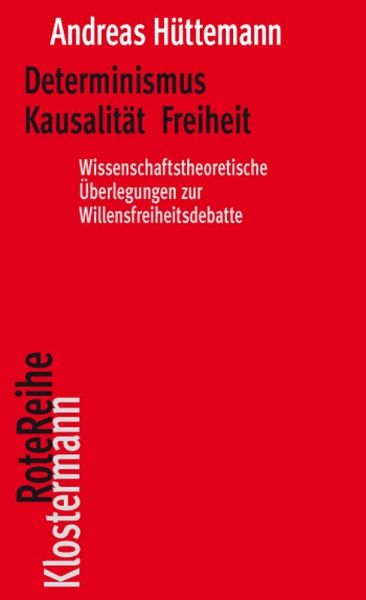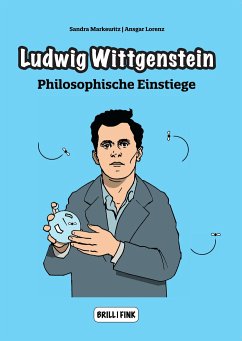
Determinismus Kausalität Freiheit
Wissenschaftstheoretische Überlegungen zur Willensfreiheitsdebatte
Versandkostenfrei!
Sofort lieferbar
24,80 €
inkl. MwSt.

PAYBACK Punkte
0 °P sammeln!
Nehmen wir an, menschliches Verhalten falle unter Naturgesetze. Diese sind entweder deterministisch oder indeterministisch. In beiden Fällen, so der erste Eindruck, ist unser Verhalten entschuldigt. Denn es scheint so, als könnten wir uns im Falle deterministischer Gesetze nicht anders verhalten, als wir uns tatsächlich verhalten. Im Falle indeterministischer Gesetze scheint es so, als seien nicht wir selbst Urheber dieses Verhaltens, weil es vom Zufall abhängt, wie wir uns verhalten. Es gibt eine Spannung zwischen der naturwissenschaftlichen Charakterisierung der Welt einerseits und der C...
Nehmen wir an, menschliches Verhalten falle unter Naturgesetze. Diese sind entweder deterministisch oder indeterministisch. In beiden Fällen, so der erste Eindruck, ist unser Verhalten entschuldigt. Denn es scheint so, als könnten wir uns im Falle deterministischer Gesetze nicht anders verhalten, als wir uns tatsächlich verhalten. Im Falle indeterministischer Gesetze scheint es so, als seien nicht wir selbst Urheber dieses Verhaltens, weil es vom Zufall abhängt, wie wir uns verhalten. Es gibt eine Spannung zwischen der naturwissenschaftlichen Charakterisierung der Welt einerseits und der Charakterisierung von Menschen, die für ihr Verhalten verantwortlich sind, andererseits. Andreas Hüttemann untersucht, wie die Beantwortung der Frage, ob Menschen für ihr Verhalten verantwortlich sind, davon abhängt, was unter Determinismus, Kausalität, Naturgesetz und (vielleicht etwas überraschender) Reduktion verstanden wird.Let us assume that human behavior is subject to natural laws. These are either deterministic or indeterministic. In both cases, the first impression is that our behavior is excused. For it seems as if, in the case of deterministic laws, we cannot behave differently than we actually do. In the case of indeterministic laws, it seems as if we ourselves are not the originators of this behavior, because how we behave depends on chance. There is a tension between the scientific characterization of the world on the one hand and the characterization of people who are responsible for their behaviour on the other. Andreas Hüttemann examines how the answer to the question of whether people are responsible for their behavior depends on what is meant by determinism, causality, natural law and (perhaps somewhat surprisingly) reduction.












